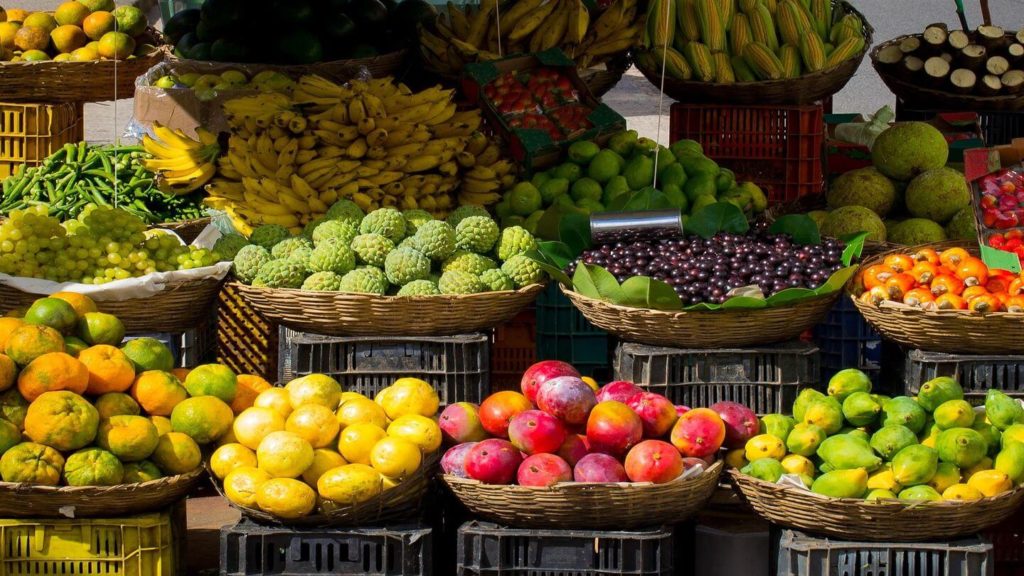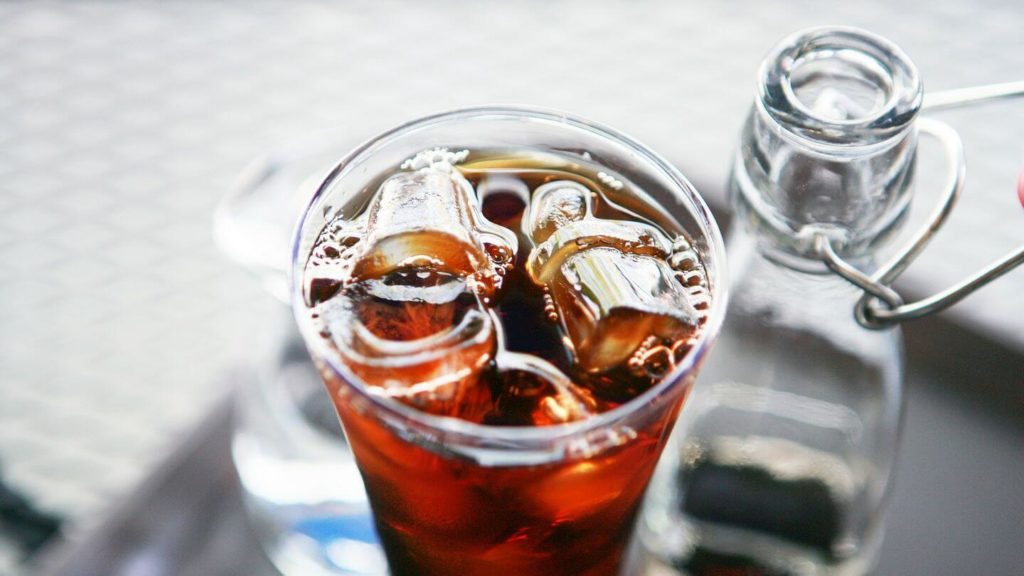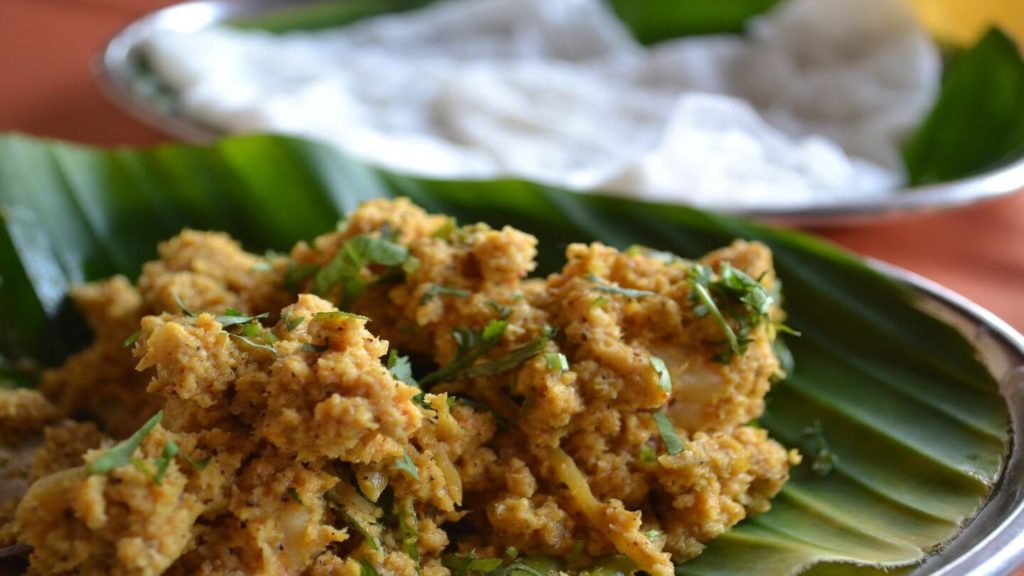Recently updated on April 30th, 2024 at 05:50 pm
India is one of the world’s greatest foodie destinations, with all kinds of amazing curries, soups, spices, sweet desserts and iconic Indian dishes. But before you dive into all that glorious food, there are a few rules that travellers should follow to avoid getting the dreaded ‘Delhi Belly’. From tap water to peeled fruits and meat, here are 10 things you should never eat or drink in India, along with some quick tips to avoid getting sick on your trip to India.
1. Tap water


The first rule of travelling in India is to never drink tap water. Even if you see locals drinking tap water, don’t follow their lead. Unsafe tap water contains harmful chemicals and E. coli bacteria that foreign stomachs cannot handle and will make you sick. It’s best to only drink bottled water and you should always make sure the seal hasn’t been broken before you drink it. You should also use bottled water to brush your teeth.
This rule also goes for ice. No matter how hot it is, never have ice in your drink, even in reputable restaurants, as ice is often made from tap water. If you want to learn a useful local phrase, learn to say ‘without ice’. It’s better to be safe than sorry! You should also avoid the fresh fruit juices sold on city streets around India, as most street vendors use tap water to make these.
2. Raw fruit and vegetables


It’s not just the fruit juices that should be avoided, but the fruit too. Most fruits are likely unwashed and carrying bacteria, while other fruits are covered in pesticides and chemicals, like the wax on apples used to make them shine.
When it comes to raw fruit and vegetables, the rule is to ‘cook it, peel it or leave it’. The heat from freshly cooked food should kill most bacteria, otherwise you should go for fruit that can be peeled like bananas – but always make sure the peel is fully intact before purchasing. Avoid fruits like pineapples or mangoes that have already been peeled, as they’re a breeding ground for bacteria.
This goes for salads too. The raw vegetables are often carrying harmful bacteria and aren’t thoroughly washed, which can all lead to E. coli infections and food poisoning.
RELATED CONTENT: Uncover India: Delhi to Kerala
3. Gol gappe


You’ll likely see gol gappe (also known as puchkas or pani-puri) in street food stalls all over the country – but it’s best to steer clear. They’re deep-fried crispy breads with a hollow middle, filled with a stuffing containing flavoured water. Again, the issue is contaminated water, and unless you know for sure they were made with safe drinking water, give it a miss.
RELATED CONTENT: Colours of Rajasthan with Mumbai
4. Golas
These popular flavoured ice candies look very tempting on a hot summer’s day – but you should always avoid them. They’re often made with tap water, stored in unsanitary places, or made with unsafe food colouring and syrups.
5. Meat from street vendors


Meat from street stalls and markets is a big no-no in India. It’s highly prone to bacteria and parasites that can lead to food poisoning and other severe illnesses.
But not to worry, as India is a vegetarian utopia, home to the world’s largest population of vegetarians. In fact, the state of Maharashtra has totally banned beef, due to Hindu religious reasons. Because of their meat-free lifestyle, Indians have taken vegetarian cooking to a new, incredible level. With all kinds of tasty veggie Indian dishes, you’re sure to keep coming back for more.
RELATED CONTENT: From Rajasthan to Mumbai: An Introduction to India


6. Cheese
We know you love cheese, but it’s best to avoid it, especially ones sold loose. It’s incredibly easy for the cheese to be contaminated with bacterias like staphylococcus aureus. The trouble with this bacteria is that it’s difficult to see. It doesn’t show any signs of spoilage, but it will definitely cause severe food poisoning. If you really want to try some cheese, go for paneer, an Indian cheese used in lots of delicious Indian dishes.
RELATED CONTENT: 10 Extraordinary UNESCO World Heritage Sites in India
7. Bhut jolokia
This notorious little chilli pepper is infamous for being the hottest in the world. We do not suggest testing out your spice limits with it! Bhut jolokia is so intense, they’ve been used to make tear gas by the Indian Army, so this is not something you want to mess with.
8. Too much spicy food


When it comes to Indian cuisine, most locals like it hot! You might want to try out the chilli flavours used in Indian dishes, but be sure to start slow and proceed with caution. Too much spicy food can act as a mild laxative, especially if you’re not used to it.
The hottest chillies to watch out for are red and green chillies. It’s also a good idea to learn the local phrase for ‘no chilli’. And make sure you have plenty of antidotes on hand like bread, yoghurt and plain rice!
9. Paan masala
Paan masalas are marketed as mouth fresheners, but they’re actually a toxic blend of tobacco, areca nut, slaked lime and other carcinogenic flavouring agents. They’re very dangerous to consume, so avoid them at all costs.
Actor Pierce Brosnan was caught up in a controversy in 2018 when he appeared in an Indian ad for paan masala. He later apologised, saying he was deceived by the company, as he thought he was promoting a breath freshener and tooth whitener with all-natural ingredients.
10. Room-temperature food


So you’re at a buffet in India and you’ve followed all the rules so far: No tap water or ice, no raw fruits or vegetables, and no fiery chillies! The final thing to watch out for is room-temperature food.
You should always avoid any buffets or restaurants that have had food sitting out for a long period of time, as this is a breeding ground for bacteria. Even something as innocent as rice could leave you in a lot of pain, so play it safe!
Tips to avoid getting sick in India


- Always wash your hands and use hand sanitiser too. The most crucial times to wash your hands are before and after using the bathroom, after handling money, and before and after eating.
- You’re always touching something (door handles, stair rails etc) so always keep your hands away from your mouth.
- Wipe down cutlery, cups and plates with antibacterial wipes before using them.
- Only eat at popular food locations and ask your Trafalgar guide for the best recommendations.


- Avoid using plates, cups or cutlery that are wet (this could be remnants of tap water).
- Use your own stainless steel straw or even bring your own travel cutlery.
- Try to watch how your drink is being made. While ice might not go into it, the ingredients may have been sitting on ice and are contaminated by it.
- Ease into eating Indian dishes, as the heavy curries and spices may be a shock to the system at first.
- Try to eat as much Indian cuisine as possible. While travelling in India it’s easy to get ‘curried out’ but it’s actually much safer to eat local food as opposed to Western dishes, as Indian chefs know how to cook their own food well. Western food in India is extremely hit and miss, and often more likely to make you sick.


RELATED CONTENT: How to pack a first aid kit for travelling
What to pack to help avoid getting sick in India
- Always stay hydrated, as the hot and sticky weather can be quite exhausting. You’ll need to drink extra water to replace lost fluids and it’s also highly recommended to bring electrolyte sachets or tablets. Should you get sick, these will be a lifeline for ensuring you don’t become dehydrated. Many hotels in India will provide free filtered water, so also bring your own reusable water bottle.
- Bring saline nose spray as it’s important to keep your nasal passages moist to avoid the germs that cause viruses. It also helps to manage the nose-drying pollution in India.
- Pack some safe snacks like granola bars from home. They’re great for long journeys or when you’re feeling queasy.
- Consult your doctor about extra precautions you can take before travelling to India. They may recommend taking probiotic pills before departure and during your trip to protect your stomach. You can also pick up some diarrhoea stoppers, pain relief and anti-nausea medication.


Our best tip? Trust your gut
Try not to be too paranoid about what you’re eating in India. Even if you religiously follow all the rules you can still get sick, wherever you are in the world. If you do get sick, there’s no need to panic. Remember that it will eventually pass and you’ll have your fantastic Trafalgar team by your side to help you.
The most important thing is to maintain your sense of humour, be patient, listen to your instincts and embrace your experience in one of the greatest culinary wonderlands on earth!
What are your top tips for avoiding sickness and staying well while travelling in India? Let us know in the comments…